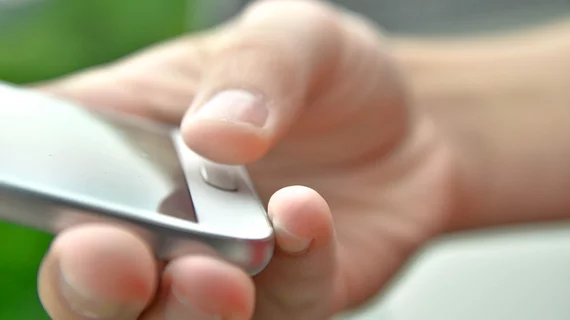Smartphone app helps TAVR patients avoid major complications
Smartphone-based digital health applications can help guide transcatheter aortic valve replacement (TAVR) patients through the recovery process and achieve better 90-day outcomes, according to new findings published in the Journal of Invasive Cardiology.[1]
“Given the common diagnosis and elderly population affected by aortic stenosis, there exists a need to provide easy access to education for patients undergoing aortic valve replacements,” wrote corresponding author Julie Doberne, MD, PhD, an assistant professor of surgery with Oregon Health & Science University, and colleagues. “In recent years, the ubiquity of smartphones has led to an explosion of digital health technology which aims to engage patients through mobile applications. These apps facilitate patient education, collect patient data, and allow for easier communication between patients and providers. Evidence has shown the efficacy of digital health tools in improving outcomes for chronic conditions such as diabetes and chronic heart disease, resulting in fewer patient visits and hospitalizations.”
This study focused on ManageMySurgery (MMS), a patient education resource designed to help patients before and after they undergo surgery. MMS is the work of Higgs Boston Health, a Durham, North Carolina-based startup. Prior research teams have already confirmed MMS can help TAVR patients when it comes to patient education—but can it make an impact on outcomes? Doberne et al. hoped to find out.
The group’s analysis focused on 238 TAVR patients who used MMS and another 150 TAVR patients who did not. All patients were treated at the same high-volume facility from March 2019 to November 2021. The median age at the time of surgery was 76.5 years old for app users and 78 years old for non-users.
Overall, after 90 days, MMS users were associated with fewer emergency room (ER) visits (12.6% vs. 27.3%), hospital readmissions (8.8% vs. 16%), minor complications (12.2% vs. 20.7%) and major complications that required intervention (8.8% vs. 16%). The most common reasons patients had to visit the ER were heart failure symptoms, neurological symptoms and syncope/falls. Common complications included conduction block requiring a pacemaker, pulmonary issues, urinary tract infections and acute kidney injuries.
“We demonstrated a 7.2% reduction in readmissions, a 14.7% reduction in ER visits, and a 15.7% reduction in total complications among patients using the digital health app,” the authors wrote. “These percentages represent numbers needed to treat (NNT) of 14, 7, and 7, respectively. When adjusted for age, sex, insurance status, STS score, and prior valve replacement status, the odds ratios for all of these outcomes remain statistically significant, suggesting that app use is associated with improved outcomes across demographics and severity of preoperative comorbidities.”
The group noted that MMS is “one of the first” health apps of its kind that has been proven to improve outcomes after cardiac surgery.
“Although it is not possible to prove direct causality, our results represent a robust analysis, and given the low-risk, low-cost nature of presenting a patient with a smartphone application, implementing digital health tools should be prioritized in procedural settings such as TAVR,” the authors added. “The utility of digital health seems to stem from its ability to increase patient engagement, which is a known factor in improving patient outcomes.”
The authors did note that this is only a single-center study, which represents a significant limitation. However, they do think these results are “generalizable to the wider population of patients undergoing TAVR.”
Click here to read the full study in the Journal of Invasive Cardiology.

